Oded Na’aman, the founder of Breaking the Silence, presents testimonies by veterans of the Israeli Defense Forces from Gaza and the Occupied Territories. This is the first of two parts.
“There is no country on Earth that would tolerate missiles raining down on its citizens from outside its borders,” President Barack Obama said at a recent press conference. He drew on this general observation in order to justify Operation Pillar of Defense, Israel’s most recent military campaign in the Gaza Strip. In describing the situation this way, he assumes, like many others, that Gaza is a political entity external and independent of Israel. This is not so. It is true that Israel officially disengaged from the Gaza Strip in August 2005, withdrawing its ground troops and evacuating the Israeli settlements there. But despite the absence of a permanent ground presence, Israel has maintained a crushing control over Gaza from that moment until today.
The testimonies of Israeli army veterans expose the truth of that “disengagement.” Before Operation Pillar of Defense, after all, Israel launched Operations Summer Rains and Autumn Clouds in 2006, and Hot Winter and Cast Lead in 2008 — all involving ground invasions. In one testimony, a veteran speaks of “a battalion operation” in Gaza that lasted for five months, where the soldiers were ordered to shoot “to draw out terrorists” so they “could kill a few.”
Israeli naval blockades stop Gazans from fishing, a main source of food in the Strip. Air blockades prevent freedom of movement. Israel does not allow building materials into the area, forbids exports to the West Bank and Israel, and (other than emergency humanitarian cases) prohibits movement between the Gaza Strip and the West Bank. It controls the Palestinian economy by periodically withholding import taxes. Its restrictions have impeded the expansion and upgrading of the Strip’s woeful sewage infrastructure, which could render life in Gaza untenable within a decade. The blocking of seawater desalination has turned the water supply into a health hazard. Israel has repeatedly demolished small power plants in Gaza, ensuring that the Strip would have to continue to rely on the Israeli electricity supply. Daily power shortages have been the norm for several years now. Israel’s presence is felt everywhere, militarily and otherwise.
By relying on factual misconceptions, political leaders, deliberately or not, conceal information that is critical to our understanding of events. Among the people best qualified to correct those misconceptions are the individuals who have been charged with executing a state’s policies — in this case, Israeli soldiers themselves, an authoritative source of information about their government’s actions. I am a veteran of the Israeli Defense Forces (IDF), and I know that our first-hand experiences refute the assumption, accepted by many, including President Obama, that Gaza is an independent political entity that exists wholly outside Israel. If Gaza is outside Israel, how come we were stationed there? If Gaza is outside Israel, how come we control it?
—
Oded Na’aman
[The testimonies by Israeli veterans that follow are taken from 145 collected by the nongovernmental organization Breaking the Silence and published in Our Harsh Logic: Israeli Soldiers’ Testimonies From the Occupied Territories, 2000-2010. Those in the book represent every division in the IDF and all locations in the West Bank and the Gaza Strip.]
1. House Demolition
Unit: Kfir Brigade
Location: Nablus district
Year: 2009
During your service in the territories, what shook you up the most?
The searches we did in Hares. They said there are sixty houses that have to be searched. I thought there must have been some information from intelligence. I tried to justify it to myself.
You went out as a patrol?
It was a battalion operation. They spread out over the whole village, took over the school, smashed the locks, the classrooms. One was used as the investigation room for the Shin Bet, one room for detainees, one for the soldiers to rest. We went in house by house, banging on the door at two in the morning. The family’s dying of fear, the girls are peeing in their pants with fear. We go into the house and turn everything upside down.
What’s the procedure?
Gather the family in a certain room, put a guard there, tell the guard to aim his gun at them, and then search the rest of the house. We got another order that everyone born after 1980… everyone between sixteen and twenty-nine, doesn’t matter who, bring them in cuffed and blindfolded. They yelled at old people, one of them had an epileptic seizure but they carried on yelling at him. Every house we went into, we brought everyone between sixteen and twenty-nine to the school. They sat tied up in the schoolyard.
Did they tell you the purpose of all this?
To locate weapons. But we didn’t find any weapons. They confiscated kitchen knives. There was also stealing. One guy took twenty shekels. Guys went into the houses and looked for things to steal. This was a very poor village. The guys were saying, “What a bummer, there’s nothing to steal.”
That was said in a conversation among the soldiers?
Yeah. They enjoyed seeing the misery, the guys were happy talking about it. There was a moment someone yelled at the soldiers. They knew he was mentally ill, but one of the soldiers decided that he’d beat him up anyway, so they smashed him. They hit him in the head with the butt of the gun, he was bleeding, then they brought him to the school along with everyone else. There were a pile of arrest orders signed by the battalion commander, ready, with one area left blank. They’d fill in that the person was detained on suspicion of disturbing the peace. They just filled in the name and the reason for arrest. There were people with plastic handcuffs that had been put on really tight. I got to speak with the people there. One of them had been brought into Israel to work for a settler and after two months the guy didn’t pay him and handed him over to the police.
All these people came from that one village?
Yes.
Anything else you remember from that night?
A small thing, but it bothered me — one house that they just destroyed. They have a dog for weapons searches, but they didn’t bring him; they just wrecked the house. The mother watched from the side and cried. Her kids sat with her and stroked her.
What do you mean, they just destroyed the house?
They smashed the floors, turned over sofas, threw plants and pictures, turned over beds, smashed the closets, the tiles. There were other things — the look on the people’s faces when you go into their house. And after all that, they were left tied up and blindfolded in the school for hours. The order came to free them at four in the afternoon. So that was more than twelve hours. There were investigators from the security services there who interrogated them one by one.
Had there been a terrorist attack in the area?
No. We didn’t even find any weapons. The brigade commander claimed that the Shin Bet did find some intelligence, that there were a lot of guys there who throw stones.
2. Naval Blockade
Unit: Navy
Location: Gaza Strip
Year: 2008
It’s mostly punishment. I hate that: “They did this to us, so we’ll do that to them.” Do you know what a naval blockade means for the people in Gaza? There’s no food for a few days. For example, suppose there’s an attack in Netanya, so they impose a naval blockade for four days on the entire Strip. No seagoing vessel can leave. A Dabur patrol boat is stationed at the entrance to the port, if they try to go out, within seconds the soldiers shoot at the bow and even deploy attack helicopters to scare them. We did a lot of operations with attack helicopters — they don’t shoot much because they prefer to let us deal with that, but they’re there to scare people, they circle over their heads. All of a sudden there’s a Cobra right over your head, stirring up the wind and throwing everything around.
And how frequent were the blockades?
Very. It could be three times one month, and then three months of nothing. It depends.
The blockade goes on for a day, two days, three days, four, or more than that?
I can’t remember anything longer than four days. If it was longer than that, they’d die there, and I think the IDF knows that. Seventy percent of Gaza lives on fishing — they have no other choice. For them it means not eating. There are whole families who don’t eat for a few days because of the blockade. They eat bread and water.
3. Shoot to Kill
Unit: Engineering Corps
Location: Rafah
Year: 2006
During the operations in Gaza, anyone walking around in the street, you shoot at the torso. In one operation in the Philadelphi corridor, anyone walking around at night, you shoot at the torso.
How often were the operations?
Daily. In the Philadelphi corridor, every day.
When you’re searching for tunnels, how do people manage to get around — I mean, they live in the area.
It’s like this: You bring one force up to the third or fourth floor of a building. Another group does the search below. They know that while they’re doing the search there’ll be people trying to attack them. So they put the force up high, so they can shoot at anyone down in the street.
How much shooting was there?
Endless.
Say I’m there, I’m up on the third floor. I shoot at anyone I see?
Yes.
But it’s in Gaza, it’s a street, it’s the most crowded place in the world.
No, no, I’m talking about the Philadelphi corridor.
So that’s a rural area?
Not exactly, there’s a road, it’s like the suburbs, not the center. During operations in the other Gaza neighborhoods it’s the same thing. Shooting, during night operations — shooting.
Is there any kind of announcement telling people to stay indoors?
No.
They actually shot people?
They shot anyone walking around in the street. It always ended with, “We killed six terrorists today.” Whoever you shot in the street is “a terrorist.”
That’s what they say at the briefings?
The goal is to kill terrorists.
What are the rules of engagement?
Whoever’s walking around at night, shoot to kill.
During the day, too?
They talked about that in the briefings: whoever’s walking around during the day, look for something suspicious. But something suspicious could be a cane.
*[This article was originally published by TomDispatch.com.]
Read the final part here.
The views expressed in this article are the author’s own and do not necessarily reflect Fair Observer’s editorial policy.
Support Fair Observer
We rely on your support for our independence, diversity and quality.
For more than 10 years, Fair Observer has been free, fair and independent. No billionaire owns us, no advertisers control us. We are a reader-supported nonprofit. Unlike many other publications, we keep our content free for readers regardless of where they live or whether they can afford to pay. We have no paywalls and no ads.
In the post-truth era of fake news, echo chambers and filter bubbles, we publish a plurality of perspectives from around the world. Anyone can publish with us, but everyone goes through a rigorous editorial process. So, you get fact-checked, well-reasoned content instead of noise.
We publish 2,500+ voices from 90+ countries. We also conduct education and training programs
on subjects ranging from digital media and journalism to writing and critical thinking. This
doesn’t come cheap. Servers, editors, trainers and web developers cost
money.
Please consider supporting us on a regular basis as a recurring donor or a
sustaining member.
Will you support FO’s journalism?
We rely on your support for our independence, diversity and quality.


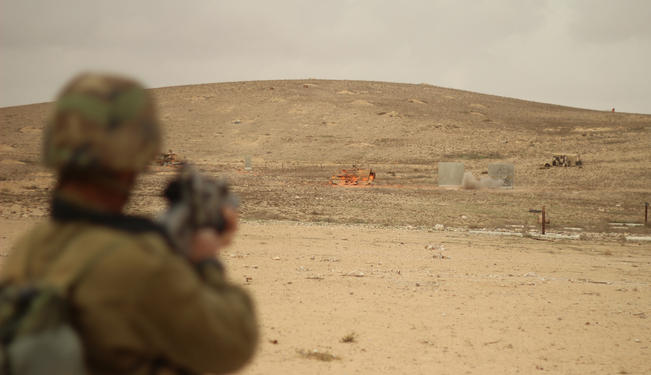
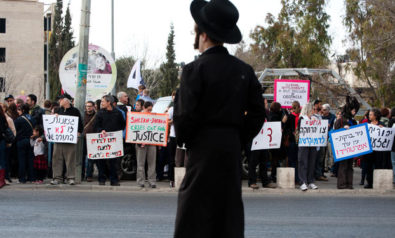

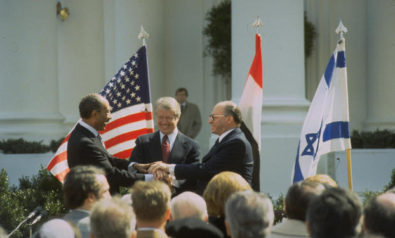
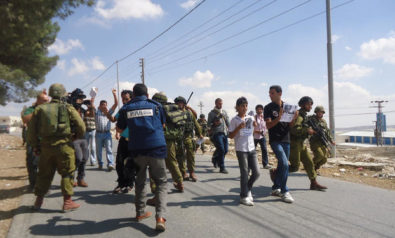

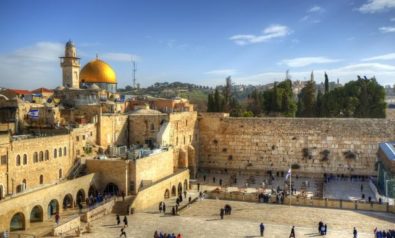
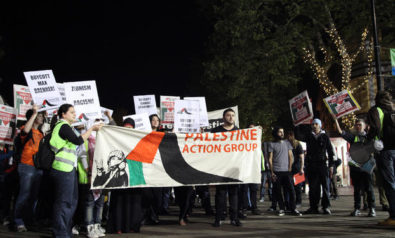
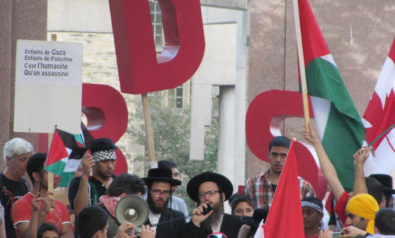

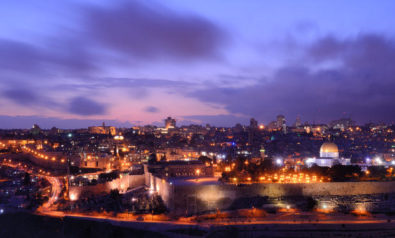

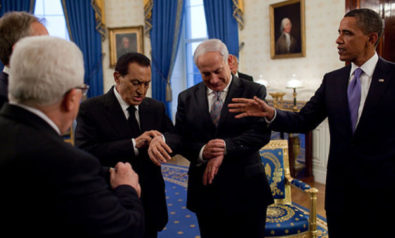

Comment